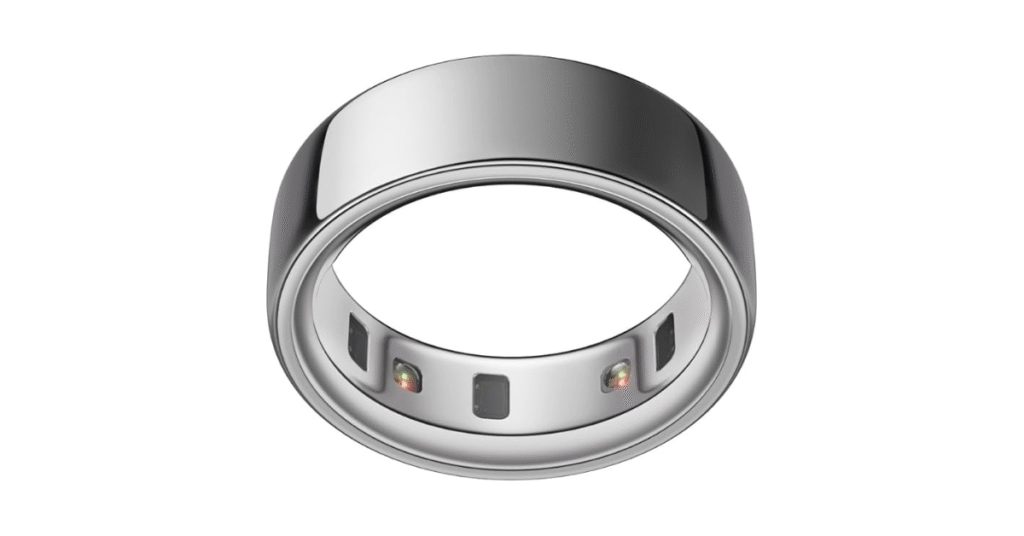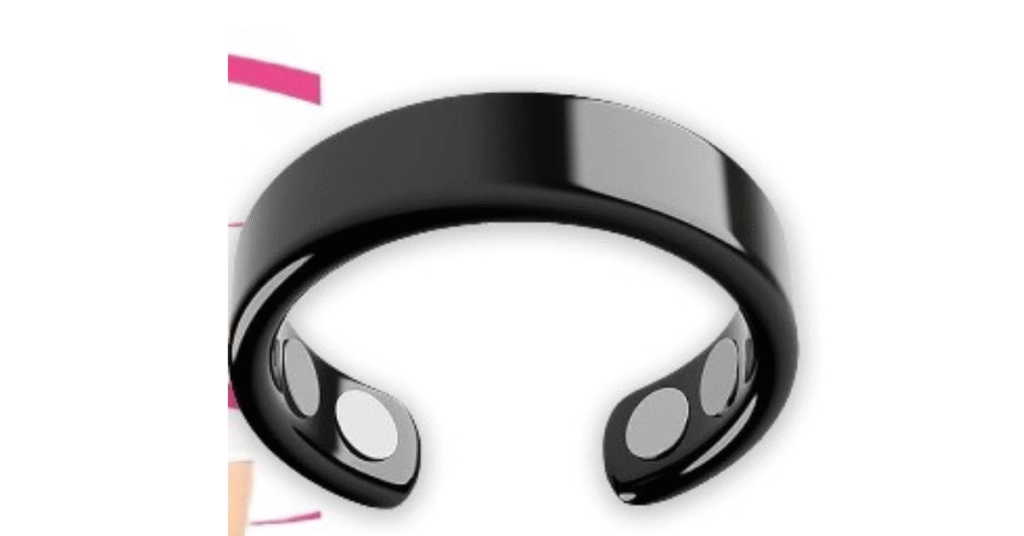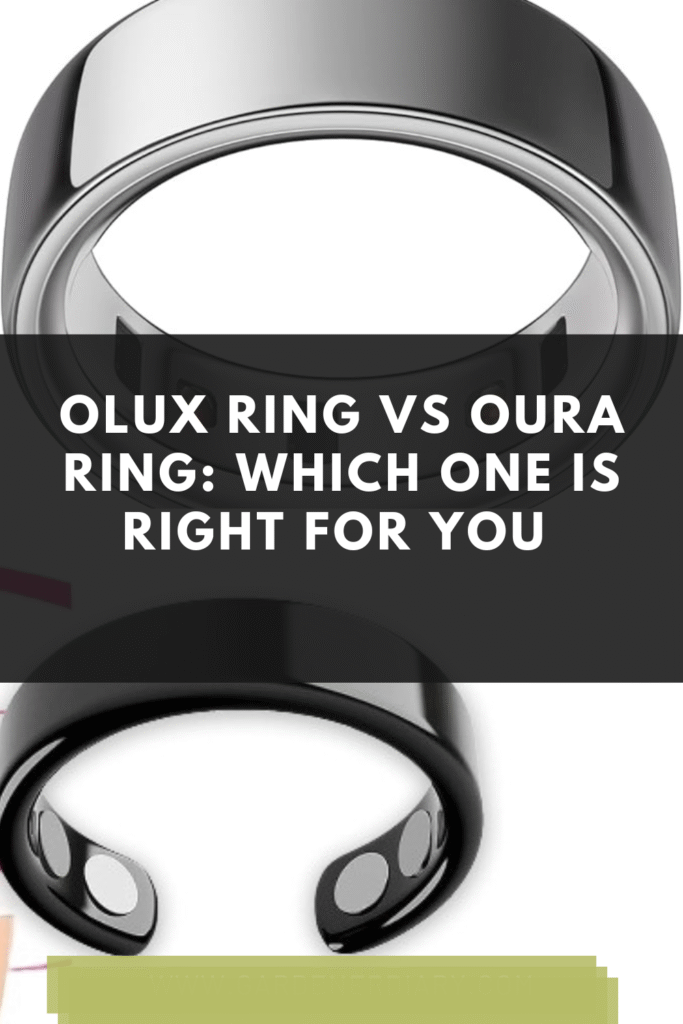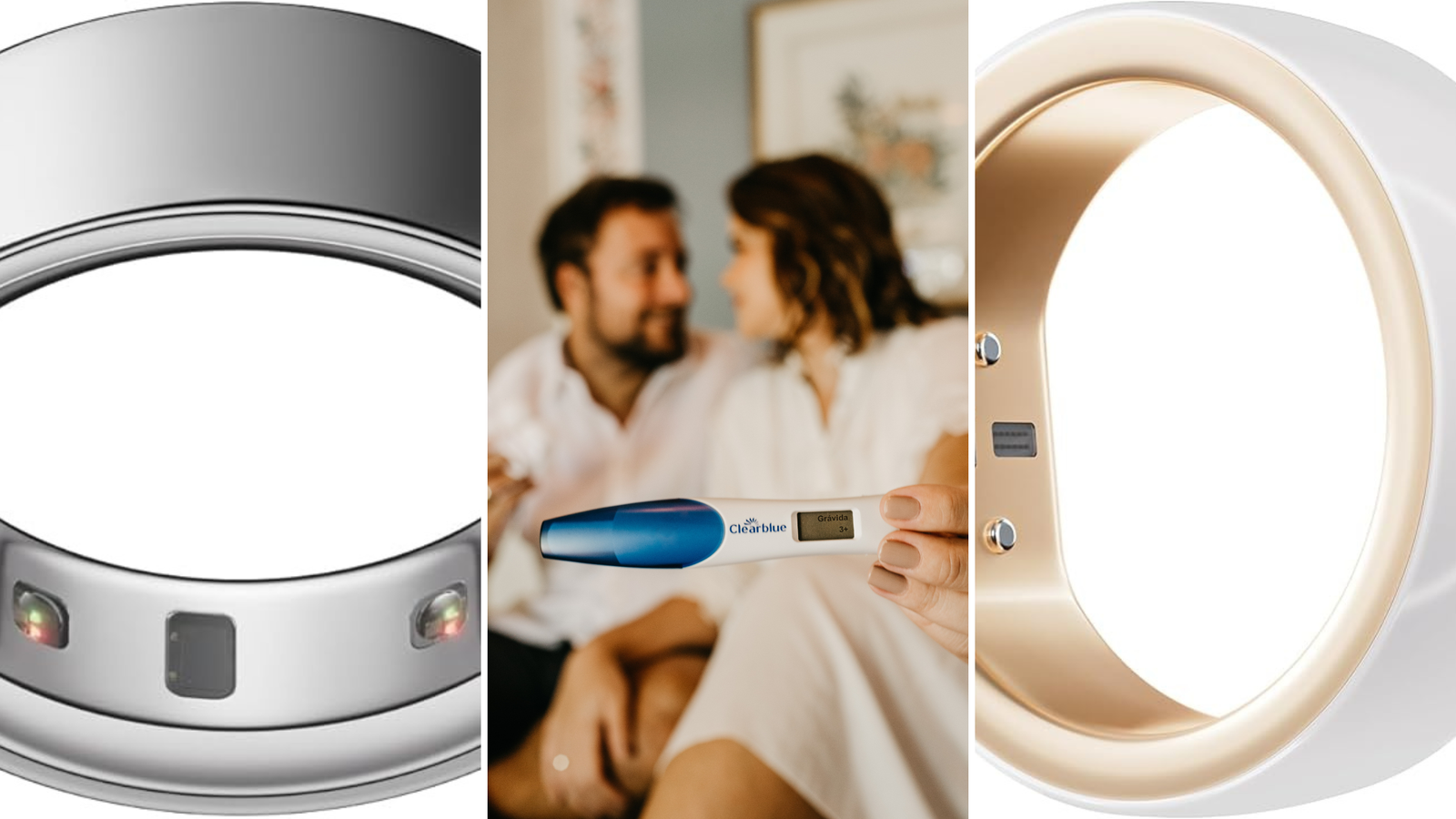Smart rings are becoming a top choice for people who want simple, non-intrusive ways to track health, sleep, and fertility. Two popular options in this space are the Olux Ring and the Oura Ring. Both promise accurate data, but they focus on slightly different features.
This post gives a clear comparison to help you decide which one suits your needs best.
Key Takeaway
The Oura Ring is ideal if you want advanced health and fertility tracking with app integrations and don’t mind a monthly fee. The Olux Ring is better for basic, budget-friendly tracking with no subscription. Choose based on your health goals, budget, and feature preferences.
Overview of the Oura Ring

The Oura Ring is a lightweight smart ring that tracks sleep, heart rate, body temperature, activity, and more. It uses advanced sensors to gather health data and syncs with a mobile app for easy viewing.
Key features:
- Sleep stages and quality tracking
- Continuous temperature sensing
- Heart rate variability (HRV) and resting heart rate monitoring
- Activity and recovery insights
- Period prediction support
Oura is popular for its science-backed tracking. Learn more about how it works here and about the company.
You can also explore its app integrations, which include Apple Health, Natural Cycles, and Google Fit. For a deeper look, read our full Oura Ring review.
Pros and Cons of the Oura Ring
Pros:
- Accurate sleep and readiness scores
- Comfortable and stylish design
- Syncs well with fertility apps
- Good for irregular cycle tracking — see our post on fertility trackers for irregular periods
Cons:
- Requires monthly subscription for full features
- No screen or on-ring notifications
- More expensive than some alternatives
For a comparison of how Oura performs against other options, see our review of the Oura Ring vs Femometer.
Overview of the Olux Ring

The Olux Ring is a newer player in the smart ring space. Like Oura, it tracks sleep, heart rate, and activity. But it also markets itself as a more affordable alternative with no subscription fees.
Key features:
- Sleep monitoring with detailed breakdowns
- Heart rate tracking and step count
- Daily energy score
- Long battery life
- Lightweight design
- No monthly fee
Learn more about its benefits here.
Olux is designed for general wellness and daily health tracking, making it a potential option for first-time users or teens. It may also work well for those searching for the best period tracker for teens.
Pros and Cons of the Olux Ring
Pros:
- No subscription fees
- Simple, user-friendly interface
- Long battery life
- Lower price point
Cons:
- Fewer app integrations
- Limited fertility insights compared to Oura
- Less research backing
If you’re looking for detailed hormone tracking, you might prefer more advanced tools like those covered in our guide on Mira vs Inito vs Proov.
Buying Guide: How to Choose Between the Olux Ring and Oura Ring
Choosing the right smart ring depends on your needs, budget, and lifestyle. Here are the key points to consider before you buy:
1. Your Main Goal
- If you want detailed sleep tracking, health trends, and fertility insights, the Oura Ring is the better option.
- If you just want a simple way to track sleep, heart rate, and activity without monthly fees, the Olux Ring may suit you.
2. Subscription Fees
- Oura Ring requires a monthly subscription to unlock most features.
- Olux Ring is a one-time purchase with no ongoing fees.
3. App Compatibility
- Oura supports integrations with Apple Health, Natural Cycles, and more.
- Olux currently has fewer integrations, which may limit syncing options.
4. Fertility Tracking
- Oura can work with fertility apps like Natural Cycles, making it useful for people trying to conceive.
- Olux lacks fertility-focused features.
For fertility-specific needs, explore the best fertility trackers for PCOS and options for irregular periods.
5. Comfort and Design
- Both are lightweight and comfortable.
- Check your ring size before ordering. Each brand offers sizing guides.
6. Budget
- Oura costs more upfront and has a monthly fee.
- Olux is more affordable with no extra charges.
Frequently Asked Questions (FAQs)
What is the main difference between Olux and Oura Ring?
The Oura Ring offers advanced health tracking with integrations and a subscription model. The Olux Ring provides basic tracking without a subscription, making it budget-friendly.

Does the Olux Ring track ovulation?
No, Olux Ring does not offer ovulation or fertility-specific tracking. For better fertility insights, consider the Oura Ring or check out Oura vs Femometer comparisons.
Is there a monthly fee for Oura Ring?
Yes, the Oura Ring requires a monthly subscription to access most of its features, including readiness scores and detailed health insights.
Can I use Olux or Oura for teen health tracking?
Olux Ring is a simple option for teens who need general health tracking. For period tracking options, see our post on the best period tracker for teens.
Which ring has better battery life?
The Olux Ring offers longer battery life than Oura. However, both rings last several days on a single charge.
Does Oura Ring support third-party app syncing?
Yes, the Oura Ring works with several apps, including Apple Health and Natural Cycles.
Is Olux Ring accurate?
Olux provides reliable sleep and heart rate tracking for everyday use. However, it may not be as detailed or clinically validated as Oura.
Can I use the Oura Ring without a subscription?
Yes, but features will be limited. You’ll only get basic insights without the subscription.
Which is better for people with irregular cycles?
The Oura Ring, when used with fertility apps, is more suitable. Learn more in our article on trackers for irregular periods.
Is there customer support for both rings?
Yes, both brands offer customer service. You can learn more on Oura’s site and Olux’s website.
Conclusion
If you need advanced health and sleep tracking, and you’re okay with a subscription, the Oura Ring is a strong choice. It’s great for people trying to optimize wellness or manage conditions like PCOS — check our list of the best fertility trackers for PCOS.
If you’re just starting out or want something affordable without a monthly fee, the Olux Ring offers good basic tracking at a budget-friendly price.
Both rings serve different needs. Your choice depends on your health goals and how much insight you want from your wearable.
Also Read:
Oura Ring vs Femometer: Which is Better?
Best Fertility Trackers for Irregular Periods
Best Period Trackers for Teens
Oura Ring Review



